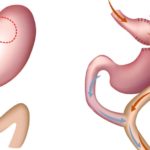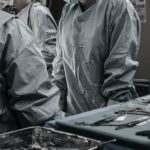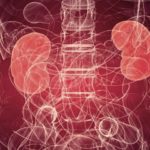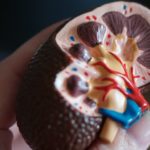Dangers of plastic surgery – what are they?
Plastic surgery is a highly specialized branch of surgery. It includes many subtypes of plastic surgery like cosmetic surgery, microsurgery, and body contouring. Plastic surgery requires a very high precision so that the best possible reconstruction may be achieved. As with any other surgery, complications can occur even after a carefully performed plastic surgery procedure.
These complications can be broadly divided into two groups; one group includes general complications which can occur with any type of surgery like bleeding and infection. The other group includes complications specific or related to a particular type of plastic surgery.
Potential complications and dangers of plastic surgery
Some of the complications can occur with any type of surgery. These depend on the surgeon’s experience, duration, and type of surgery, and condition of the patient. These dangers include:
Bleeding: Bleeding may occur during or after surgery. Control of bleeding is achieved by ligation of a bleeding vessel or by electrosurgery. Some patients who have a shortage of clotting factors will require blood transfusion.
Pain: Post-operative patient requires painkillers depending on the severity and duration of symptoms.
Infection: This is one of the most dreaded complications of surgery. It is called a ‘surgical site infection’ or SSI. It may result in poor healing or complete breakdown of the wound. Antibiotics are required for treatment. If the infection is related to the placement of an implant like an artificial breast prosthesis, it may need to be removed to control the infection.
Hypertrophic scar: Some patients develop very prominent scar which looks bad and is associated with itching and pain.
Seroma: A clear fluid or serum accumulates under the tissues after surgery. This may result in infection and a delay in healing. It is drained by needle aspiration under ultrasound imaging.
Implant failure: An implant like a breast prosthesis may fail due to leakage or change in shape. It may require a replacement or an alternative plastic surgery procedure.
Skin graft or flap death: After skin grafting or flap cover of a large wound, the blood supply may be insufficient. The skin graft may come off due to infection. A skin flap turns black due to lack of blood supply and requires surgical removal.
Specific complications of plastic surgery
Facelift: It may result in facial asymmetry making it look worse. The hairline may shift forwards or backwards. Ecchymosis may occur which usually disappears in a few weeks although permanent pigmentation may occur. Facial nerve damage distorts the facial expression and adds to the morbidity. It may require more procedures for the correction of the deformity.
Rhinoplasty: This is plastic surgery done on the nose. It may develop asymmetry and obstruction of the airway. This may affect the breathing pattern; a mouth breather keeps the mouth open.
Blepharoplasty: This is done for correction of the structure of eyelids distorted by post-burn scarring. Excessive tear formation or dryness of the eyes may occur.
Breast augmentation: Breast augmentation is performed to increase the size of the breast. It may be followed by breast asymmetry, uneven levels of both nipples, and unequal sizes of breasts. There may be a temporary or permanent loss of nipple sensation. Capsular contracture may develop after implantation of breast implant due to fibrosis and shrinkage around an implant. This may displace an implant.
Liposuction: This is done by sucking out excessive fat from under the skin. It may result in puckering, skin necrosis, seroma formation, and infection. An asymmetry of body contour may occur.
The list of complications is endless. Complications can occur after any surgery as every person responds differently to any standard procedure. One should discuss the plastic surgery procedure, its common complications, and dangers with the operating surgeon. The expectations of the patient are more likely to be realistic after a clear interaction with an experienced surgeon.




























